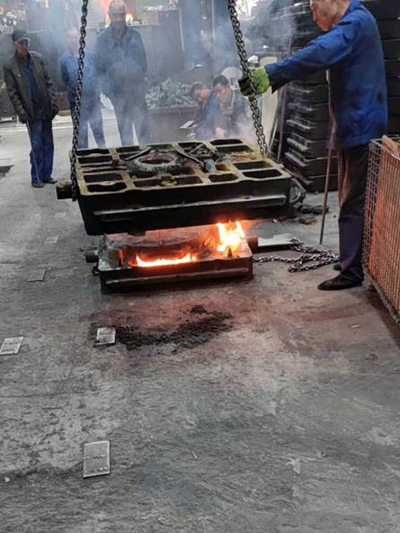The Role of Resin Coated Sand in Modern Casting Techniques
Resin coated sand (RCS) has become a critical material in the foundry industry, thanks to its unique properties and wide range of applications. As the demand for precision and high-quality casting increases, manufacturers are turning to RCS to enhance their production processes. This article explores the uses and advantages of resin coated sand, highlighting its significance in modern casting techniques.
What is Resin Coated Sand?
Resin coated sand consists of high-quality silica sand that is coated with a resin material. The process usually involves mixing the sand with a thermosetting resin that bonds to the sand particles upon heating. This creates a rigid mold that can withstand the intense heat of molten metal, making it ideal for various casting methods, including investment casting, shell molding, and lost foam casting.
Uses of Resin Coated Sand
1. Automotive Industry
One of the primary applications of resin coated sand is in the automotive industry. High precision and the ability to create complex geometries are essential for manufacturing automotive components. RCS allows for the production of intricate parts with excellent finish quality and dimensional accuracy, which are critical for engine components, transmission cases, and other automotive applications.
2. Aerospace Components
The aerospace sector also benefits from the use of resin coated sand. Parts requiring high strength-to-weight ratios and intricate detail can be effectively produced using RCS. The aerospace industry often demands casting processes that can handle high stress and extreme temperatures, making resin coated sand an ideal solution for creating turbine blades, housing, and other crucial components.
3. Marine Applications
In the marine industry, where durability and corrosion resistance are paramount, resin coated sand is leveraged to produce parts that meet stringent specifications. Components such as propellers, hull fittings, and machinery parts are commonly made from RCS, providing the necessary toughness and resistance to the challenging marine environment.
4. Industrial Equipment
Various industrial equipment also utilizes resin coated sand for manufacturing components. The durability and thermal stability of RCS ensure that parts such as pumps, valves, and compressors can be produced with high reliability. This is especially relevant in industries where machinery operates under harsh conditions.
5. Artistic and Decorative Castings
resin coated sand uses

Beyond industrial applications, resin coated sand is also used for artistic and decorative purposes. Sculptors and artists appreciate the fine detail and smooth surface finish achievable with RCS. The ability to create aesthetically pleasing artworks with intricate designs makes it a favored choice for custom sculptures, decorative pieces, and architectural elements.
Advantages of Using Resin Coated Sand
The benefits of using resin coated sand extend beyond versatility to encompass several significant advantages
1. Enhanced Strength and Durability
Resin coated sand molds exhibit superior strength and resistance to thermal shock compared to traditional sand molds. This results in fewer defects and better quality castings, reducing the number of rejects during the manufacturing process.
2. Improved Surface Finish
The smooth finish of resin coated sand molds leads to higher quality castings with reduced post-processing requirements. This not only improves the aesthetic quality of the final product but also minimizes additional machining, saving time and reducing costs.
3. Reusability
RCS molds can often be reused, contributing to more sustainable manufacturing practices. After a casting cycle, the sand can be reclaimed, re-coated, and used again, minimizing waste and reducing the overall material cost.
4. Compatibility with Automation
The consistent quality of resin coated sand allows it to be effectively used in automated casting processes, enabling foundries to streamline operations and improve production efficiency.
Conclusion
Resin coated sand plays a pivotal role in modern casting techniques across various industries. Its applications range from automotive and aerospace components to decorative art pieces, underscoring its versatility. The advantages it offers—such as enhanced strength, improved surface finish, and sustainability—make it a preferred choice for manufacturers looking to meet the highest standards of quality and performance. As technology advances, the use of resin coated sand is expected to grow, further solidifying its place in the foundry industry.
Post time:11月 . 27, 2024 01:35
Next:Inspired Sand Creations by Heath Ceramics for Unique Home Decor
